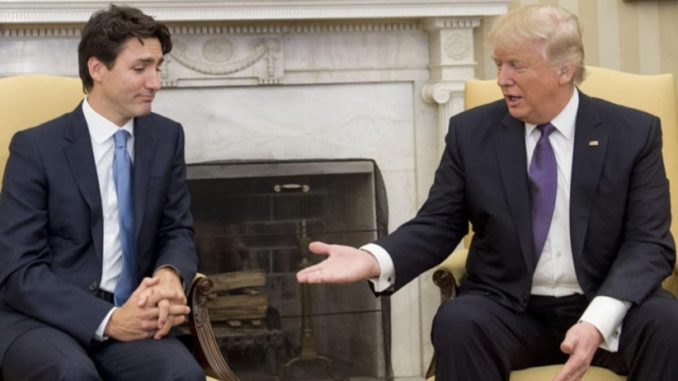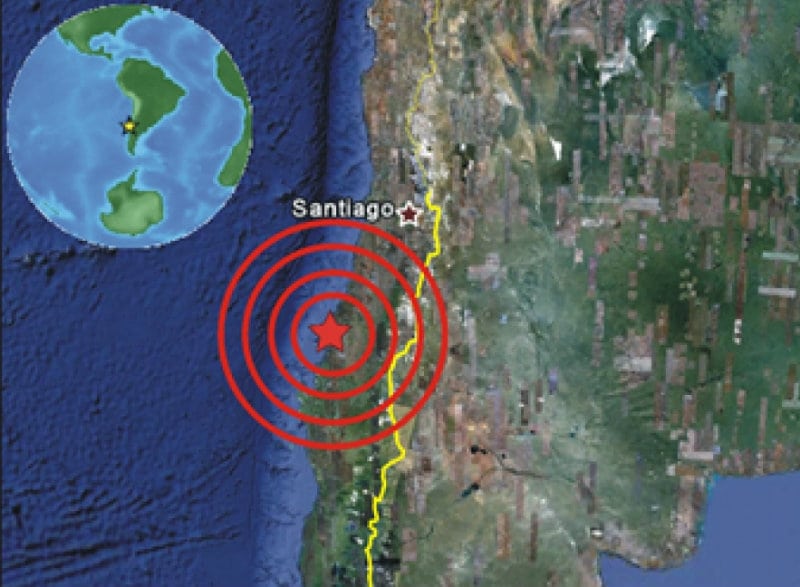
WASHINGTON – The United States and its traditional allies are on the brink of a full-scale trade war after European and Canadian leaders reacted swiftly and angrily to Donald Trump’s decision to impose tariffs on steel and aluminium producers.
US commerce secretary Wilbur Ross, who is in Paris, said a 25% tax on steel and 10% tax on aluminium from the EU, Mexico and Canada will start from midnight on Thursday.
“We look forward to continued negotiations, both with Canada and Mexico on the one hand, and with the European Commission on the other hand, because there are other issues that we also need to get resolved,” he said.
President Donald J. Trump is implementing steel and aluminum tariffs on Canada, Mexico, and the European Union.
What you need you know
https://t.co/nNwGAoNrox pic.twitter.com/PNzl9AzKnL
— The White House (@WhiteHouse) May 31, 2018
The move immediately triggered vows of retaliation from Mexico, Canada and the EU, which called the tariffs “protectionism, pure and simple”.
EU trade commissioner Cecilia Malmstrom said it was a “bad day for world trade”, while European Commission president Jean-Claude Juncker said the move was “totally unacceptable”.
It’s a bad day for world trade. US leaves us no choice but to proceed with a WTO dispute settlement case and the imposition of additional duties on a number of US imports. We will defend the EU’s interests, in full compliance with international trade law. https://t.co/J3wPW5Ew7K pic.twitter.com/aDlOWcSgRv
— Jean-Claude Juncker (@JunckerEU) May 31, 2018
The EU has “no choice” but to bring a case before the World Trade Organization and impose duties on US imports, he added.
Europe, along with Canada and Mexico, had been granted a temporary reprieve from the tariffs after they were unveiled by Donald Trump two months ago.
The U.K. said it was “deeply disappointed” by the US decision, which followed weeks of negotiations.
The tariffs will hit products such as plated steel, slabs, coil, rolls of aluminium, and tubes, raw materials which are used extensively across US manufacturing, construction, and the oil industry.
Canadian Prime Minister Justin Trudeau said the tariffs were an “affront” to the longstanding relationship between Canada and the U.S., especially to the “thousands of Canadian soldiers who fought and died alongside their American comrades-in-arms” in Afghanistan.
He said Canada plans to levy tariffs on American products worth about $13bn starting 1 July. It is also planning a challenge at the World Trade Organization.
Canada will impose tariffs against imports of steel, aluminum, and other products from the US – we are imposing dollar for dollar tariffs for every dollar levied against Canadians by the US.
— Justin Trudeau (@JustinTrudeau) May 31, 2018
He said: “We have to believe that at some point common sense will prevail but we see no sign of that in this [US] action today.”
These countermeasures will only apply to goods originating from the US and will take effect on July 1, and will remain in place until the US eliminates its trade-restrictive measures against Canada.
— Justin Trudeau (@JustinTrudeau) May 31, 2018
Canada said it would put 25% tariffs on certain types of American steel, as well as a 10% tax on other items, including yoghurt, whiskey and roasted coffee.
Canada will also challenge these illegal & counterproductive measures under NAFTA Chapter 20 and at the WTO. It is simply ridiculous to view any trade with Canada as a national security threat to the US and we will continue to stand up for Canadian workers & Canadian businesses.
— Justin Trudeau (@JustinTrudeau) May 31, 2018
Mexico’s Economy Ministry said it is planning new duties for steel, pork legs and shoulders, apples, grapes, blueberries and cheese.
German Chancellor Angela Merkel said the EU response will be “intelligent, decisive and joint”, adding that the tariffs are incompatible with WTO rules.

France’s President Emmanuel Macron spoke forcefully against the tariffs, calling them “illegal” and a “mistake”.
He said he will speak with Donald Trump on Thursday evening, warning that the move could close the door on other talks.
Europe had previously outlined a list of items, including US bourbon, cranberries and jeans, as targets for retaliation.
Fears of a global trade war are already weighing on investor confidence and could hinder the global economic upturn. European officials argue that tit-for-tat tariffs will hurt growth on both sides of the Atlantic.
Brazil, Argentina and Australia have agreed to limit steel shipments to the U.S. in exchange for being spared the tariffs, the US Department of Commerce said. Tariffs will remain on imports from Japan.



